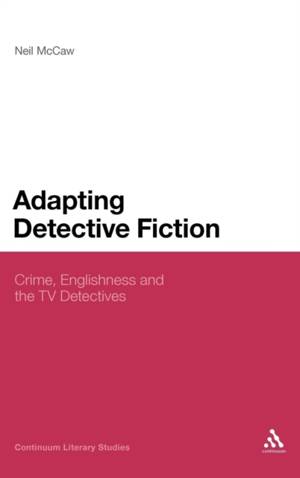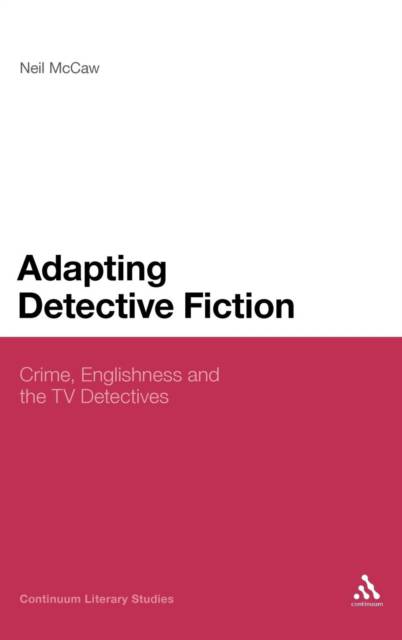
Je cadeautjes zeker op tijd in huis hebben voor de feestdagen? Kom langs in onze winkels en vind het perfecte geschenk!
- Afhalen na 1 uur in een winkel met voorraad
- Gratis thuislevering in België vanaf € 30
- Ruim aanbod met 7 miljoen producten
Je cadeautjes zeker op tijd in huis hebben voor de feestdagen? Kom langs in onze winkels en vind het perfecte geschenk!
- Afhalen na 1 uur in een winkel met voorraad
- Gratis thuislevering in België vanaf € 30
- Ruim aanbod met 7 miljoen producten
Zoeken
€ 339,45
+ 678 punten
Uitvoering
Omschrijving
Adapting Detective Fiction is a study of specific instances of adaptation, with close readings of both the originating sources and adapted texts. But it is also more than this. It is a study of the politics of representation in the last decades of the twentieth century, and the role television detective fiction plays in this. It is about the mutually-informing interrelation of cultural texts and political rhetoric, about the connection between the popular-cultural depiction of crime and criminality and how we come to understand human behaviour and culpability; most of all, it is a detailed consideration of what the process of adaptation reveals about the shifting nature of the world in which we live. With specific reference to television series such as The Adventures of Sherlock Holmes Miss Marple. A Touch of Frost Cadfael, and Midsomer Murders Adapting Detective Fiction uses adaptation as the basis for an exercise in later twentieth-century cultural history, illustrating the fundamental role detective fictions play in popular beliefs about the nature of crime and Englishness.
Specificaties
Betrokkenen
- Auteur(s):
- Uitgeverij:
Inhoud
- Aantal bladzijden:
- 208
- Taal:
- Engels
Eigenschappen
- Productcode (EAN):
- 9781847063076
- Verschijningsdatum:
- 20/01/2011
- Uitvoering:
- Hardcover
- Formaat:
- Ongenaaid / garenloos gebonden
- Afmetingen:
- 157 mm x 234 mm
- Gewicht:
- 458 g

Alleen bij Standaard Boekhandel
+ 678 punten op je klantenkaart van Standaard Boekhandel
Beoordelingen
We publiceren alleen reviews die voldoen aan de voorwaarden voor reviews. Bekijk onze voorwaarden voor reviews.









